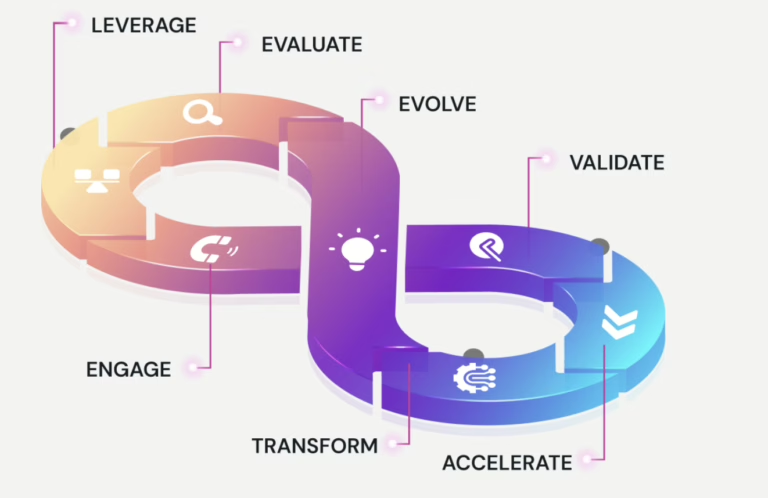Environmental, social, and governance (ESG) considerations are ingrained in every aspect of the business’s operations. A robust ESG strategy undoubtedly adds value.
ESG’s interconnected nature is evident; for instance, social aspects often intersect with environmental and governance factors when adhering to sustainability regulations. While our primary focus might be on environmental and social aspects, governance is equally vital. Excelling in governance entails not just legal compliance but also embodying the principles behind laws, like preempting violations and fostering transparency with regulators.
The urgency to proactively address ESG has heightened. In August 2019, the US Business Roundtable reaffirmed businesses’ commitment to stakeholders beyond just shareholders. This shift in mindset has fueled the meteoric rise of ESG-oriented investing, surpassing $30 trillion globally. This surge stems from increased societal, governmental, and consumer scrutiny on corporate impacts, as well as recognition from investors and executives that a robust ESG strategy ensures long-term success.
Research overwhelmingly supports the benefits of ESG integration. Companies prioritizing ESG not only enjoy higher equity returns but also mitigate downside risks, evidenced by lower loan spreads and higher credit ratings.
However, while the case for ESG’s financial benefits is compelling, the exact mechanisms linking ESG to value creation still need to be discovered.
The ESG implementation is relevant to value creation for any organization in the following ways -
- Facilitating revenue expansion,
- Reducing costs,
- Minimizing regulatory and legal interventions,
- Increasing employee productivity
- Optimizing investment and capital expenditures
- Improving customer retention
Each of these six levers should be part of a leader’s checklist when approaching ESG opportunities—and so should be an understanding of the dynamics needed for the levers to accomplish their heaviest lifting.
As the world places increasing value on sustainability and ethical practices, the integration of ESG into business becomes not just a moral obligation but also a strategic move for businesses seeking to succeed in a competitive market driven by conscious consumerism.
How can ESG be a catalyst in driving brand value?
The six links mentioned above are a way to proceed effectively with ESG implementation. They are crucial to be considered regardless of a company’s business model or location. The value creation relies on all of them -
Revenue Expansion -
Having a strong ESG proposition in a business can open new avenues for companies and help them thrive in existing markets. When authorities trust businesses to act responsibly, they’re more inclined to grant them access, approvals, and licenses, creating fresh opportunities for growth. Take, for instance, a recent massive public-private infrastructure project in Long Beach, California. The for-profit companies chosen to take part were selected based on their past record in sustainability. This emphasis on superior ESG performance has proven beneficial in industries like mining as well.
Let’s consider gold mining, for example, a sector where companies might expect similar profits regardless of their ESG practices. Surprisingly, a major study revealed that companies with strong social engagement, valued by both the public and stakeholders, faced fewer hurdles in extracting resources. These companies didn’t encounter significant delays in planning or operations and, as a result, enjoyed higher valuations compared to competitors with weaker social capital.
Cost Reductions –
ESG isn’t just about ethical considerations; it can also significantly cut costs. One major advantage is its ability to address rising operational expenses, like raw-material costs and the actual cost of resources such as water or carbon. According to McKinsey research, these expenses can impact operating profits by up to 60%.
The study also says there is a correlation between resource efficiency and financial performance across various industries. Companies that excelled in resource efficiency tended to perform better financially, underscoring the financial benefits of robust sustainability strategies.
Recognizing the opportunity to mitigate environmental risks, a company operating in the fields of industry, worker safety, healthcare, and consumer goods implemented its “pollution prevention pays” program in 1975. By proactively addressing pollution through product reformulation, process improvements, equipment redesign, and waste recycling, the company has saved a staggering $2.2 billion over the years. This demonstrates how integrating ESG practices can not only enhance environmental stewardship but also generate substantial cost savings and competitive advantages.
Minimized Regulatory and Legal Interventions –
A robust ESG plan helps companies navigate regulations more efficiently and have more strategic flexibility. Across different industries and places, companies with strong ESG practices tend to face less risk of government interference. Sometimes, it can even get them support from the government.
The potential value at risk here is significant. Studies suggest that around one-third of a company’s profits could be at risk due to government intervention. This impact varies across industries. For instance, in pharmaceuticals and healthcare, it’s about 25 to 30 percent of profits. In banking, where regulations like capital requirements and consumer protection are crucial, it’s typically 50 to 60 percent. And in sectors like automotive, aerospace, defense, and tech, where there are often government subsidies, the value at risk can be as high as 60 percent.
Increased Employee Productivity –
A strong ESG plan helps companies attract and keep top-notch employees, boosting their motivation and productivity. Happy employees often mean better returns for shareholders. Research shows that companies on Fortune’s “100 Best Companies to Work For” list tend to have higher stock returns, up to 3.8% annually over 25 years.
Employees who feel connected to their work tend to perform better. When they see the positive impact of their efforts, they’re more motivated to work in ways that benefit others. Recent studies also suggest that making a positive social impact leads to higher job satisfaction. Plus, when companies engage in charitable activities, employees respond with enthusiasm. But remember productivity issues can also arise beyond your company’s walls, affecting the entire supply chain.
Optimized Investments –
A strong ESG strategy can boost investment returns by directing funds toward promising and sustainable opportunities, like renewable energy and waste reduction initiatives. It also helps companies avoid investments that might not be helpful due to long-term environmental issues.
It’s crucial to start with the correct baseline when assessing investment returns in ESG. Doing nothing can lead to declining profits, mainly if you’re relying on outdated, energy-intensive equipment. While updating operations may require significant investment, delaying action can end up being even costlier.
Regulatory responses to emissions and other environmental concerns are changing the game. Energy costs could rise, particularly impacting industries with high carbon emissions. Restrictions on single-use plastics or diesel vehicles in urban areas will also affect many businesses, forcing them to adapt. Repurposing assets now can help companies stay ahead of these shifts.
Improved Customer Retention
ESG isn’t just a buzzword; it’s shaping consumer behavior, too. Research indicates that consumers are increasingly willing to put their money where their values lie and pay a premium for eco-friendly products. While there’s variation in consumer attitudes, with some unwilling to pay even a slight premium, a significant majority—over 70% in various industries such as automotive, construction, electronics, and packaging—expressed willingness to shell out an extra 5% for a green product that matches the performance of its non-green counterpart.
Furthermore, a separate study found that nearly 44% of companies surveyed cited business growth and opportunities as the driving force behind their sustainability initiatives. And the results speak for themselves—the payoffs are tangible. This underscores how aligning with ESG principles isn’t just about doing the right thing morally but also reaping real rewards in terms of consumer loyalty and business success.
ESG Driving Brand Success in a Sustainable Future
Integrating ESG into business operations is imperative for long-term success and value creation. The interconnected nature of ESG factors highlights the need for a comprehensive strategy that encompasses environmental sustainability, social responsibility, and effective governance practices.
The urgency to address ESG issues has escalated, driven by shifting societal norms, increased regulatory scrutiny, and the rise of conscious consumerism. This shift in mindset has led to the exponential growth of ESG-oriented investing, surpassing $30 trillion globally, as investors and executives recognize the financial benefits of ESG integration.
While the exact mechanisms linking ESG to value creation may not be fully understood, research consistently demonstrates the positive impact of ESG on financial performance. Companies that prioritize ESG not only enjoy higher equity returns but also mitigate risks and enhance their competitive advantage.
Implementing ESG practices can catalyze brand value in several ways – Revenue Expansion, Cost Reductions, Minimized Regulatory and Legal Interventions, Increased Employee Productivity, Optimized Investments, and Improved Customer Relationships.
Ultimately, integrating ESG into business strategies is not only a moral imperative but also a strategic necessity in today’s market landscape. By embracing ESG principles, companies can not only fulfill their social and environmental responsibilities but also unlock significant value and ensure long-term viability in a competitive and conscientious market.







